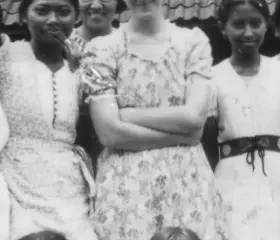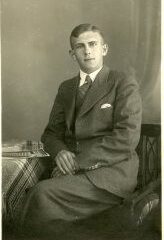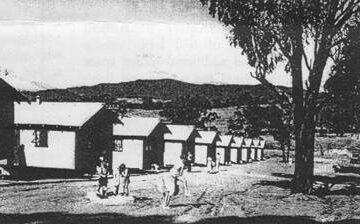Early Life and Introduction to Football
Trixie Tagg (née van Lieshout) was born on December 13, 1948, in Amsterdam. Growing up in Amsterdam-West, Trixie was introduced to football at a young age, playing street football with friends—mostly boys—in the late 1950s. She fondly remembers listening to football matches on the radio and watching games on TV with her father, which ignited her passion for the sport.
Emigration to Australia and Early Career
Trixie’s parents had lived in Netherlands East Indies and were interned in separate Japanese concentration camps. After they were liberated, they moved to the Netherlands but didn’t adjust well to the climate. In 1962, at the age of 13, Trixie and her family emigrated to Australia. It wasn’t until 1967, at 19 years old, that she joined a football team after responding to a newspaper advertisement. She started playing for first ever women’s team in the Sydney Prague Club, where she and her teammates were welcomed and supported by notable figures like coach Joe O’Connor and his son Kirk. Her skills and dedication quickly became apparent as she trained rigorously and played with determination.
Club Success and Unbeaten Streak
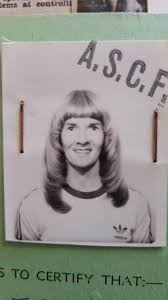
After three years with Sydney Prague, Trixie moved to the St. George Budapest team in the New South Wales (NSW) Metropolitan Ladies Soccer Association. This move was driven by a need for stronger competition, and it paid off. Under the guidance of the St. George men’s team, which included football legends like Rale Rasic and Jim Fraser, Trixie and her team achieved an incredible 12-year unbeaten streak. This period included three years with Sydney Prague, seven years with St. George, and two years with Marconi.
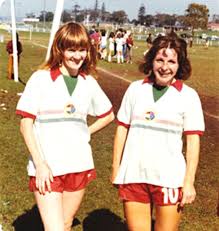
International Debut and the 1975 AFC Women’s Championship
In 1975, Trixie was selected to be part of Australia’s first international women’s tournament, the AFC Women’s Championship in Hong Kong. The team, wearing former men’s team shirts, competed valiantly and made history as the first Australian women’s national football team, now known as the Matildas. Trixie was capped four times during the tournament, scoring three goals and earning a place in the 1975 Asian All-Stars team alongside her teammates.
Australia’s journey in the tournament included a victory over Singapore and narrow losses to Thailand and New Zealand, eventually securing third place with a decisive win over Malaysia. The pride and camaraderie Trixie felt during this time left a lasting impact on her and her teammates, solidifying their place in the history of Australian football.
Coaching Career and Contributions
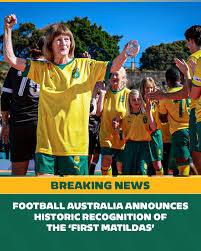
Following her playing career, Trixie transitioned to coaching, becoming one of the first coaches of the Australian women’s national football team. In 1981, she became the first woman to coach the Matildas and led the team on a successful tour of New Zealand. Her coaching career, which spanned from 1979 to 1989, included conducting coaching clinics with notable figures like Rale Rasic, Kevin Keegan, and Raoul Blanco.
Legacy and Recognition
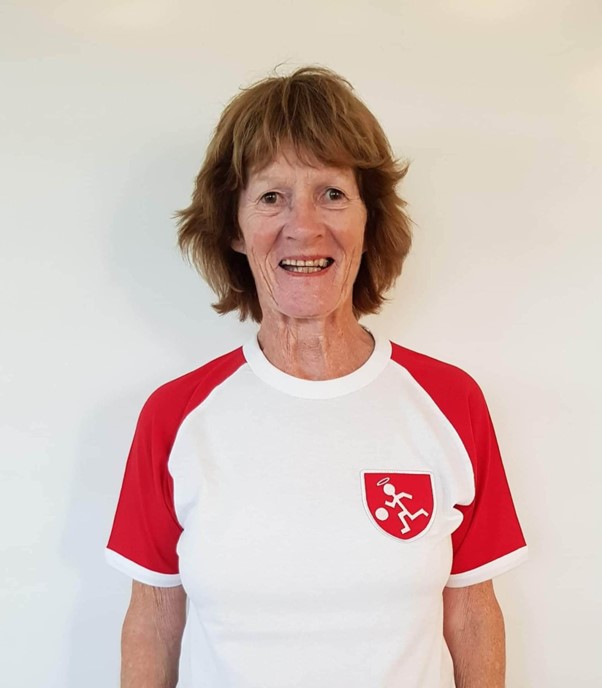
Trixie’s contributions to football extended beyond coaching. She played a significant role as an administrator, referee, and advocate for women’s football in Australia. Her involvement in Zone, Regional, and Combined High Schools boys’ football for over 20 years further showcased her dedication to the sport. In recognition of her contributions, Trixie was inducted into the Football Australia Hall of Fame in 2007.
Despite her historic achievements, Trixie remained humble and focused on the growth of the sport. She emphasised the importance of making football more affordable and accessible to ensure its continued development in Australia.
Conclusion
Trixie Tagg’s journey from playing street football in Amsterdam to becoming a pioneering figure in Australian women’s football is a testament to her passion, determination, and impact on the sport. Her story is a reminder of the challenges and triumphs faced by early women’s footballers and the enduring legacy they leave behind. Trixie Tagg’s contributions to football will always be remembered and celebrated.
See also: Clogball
